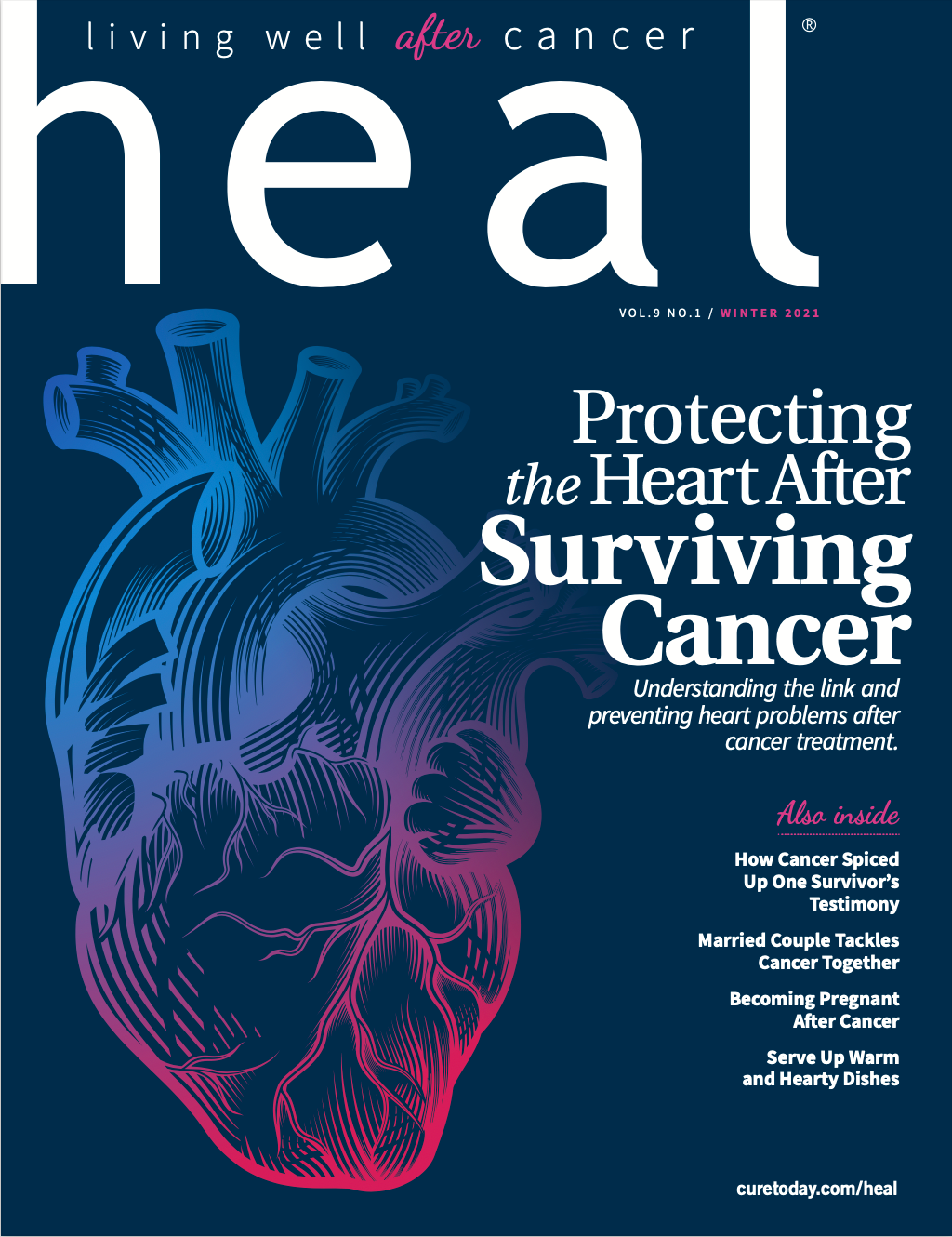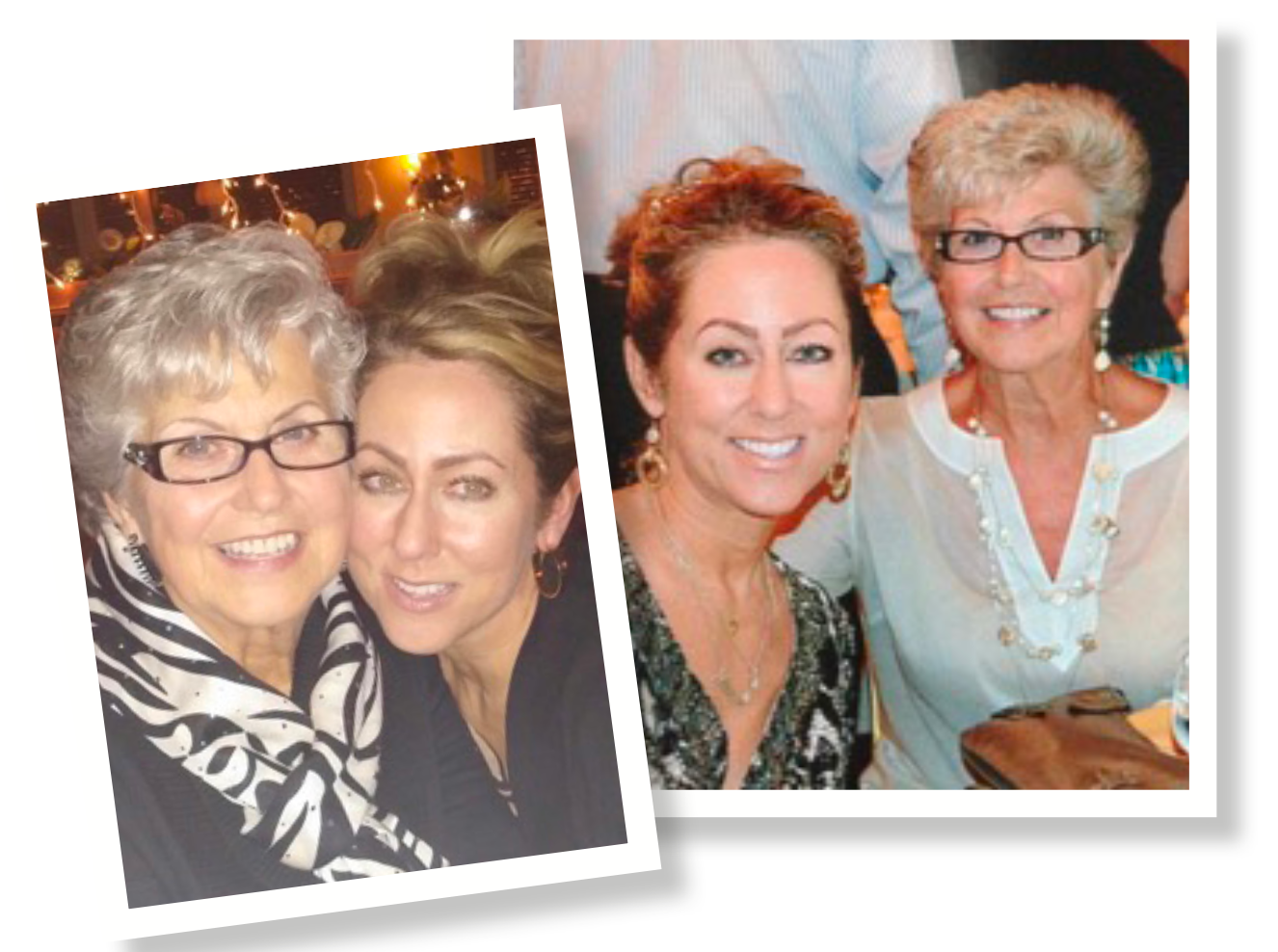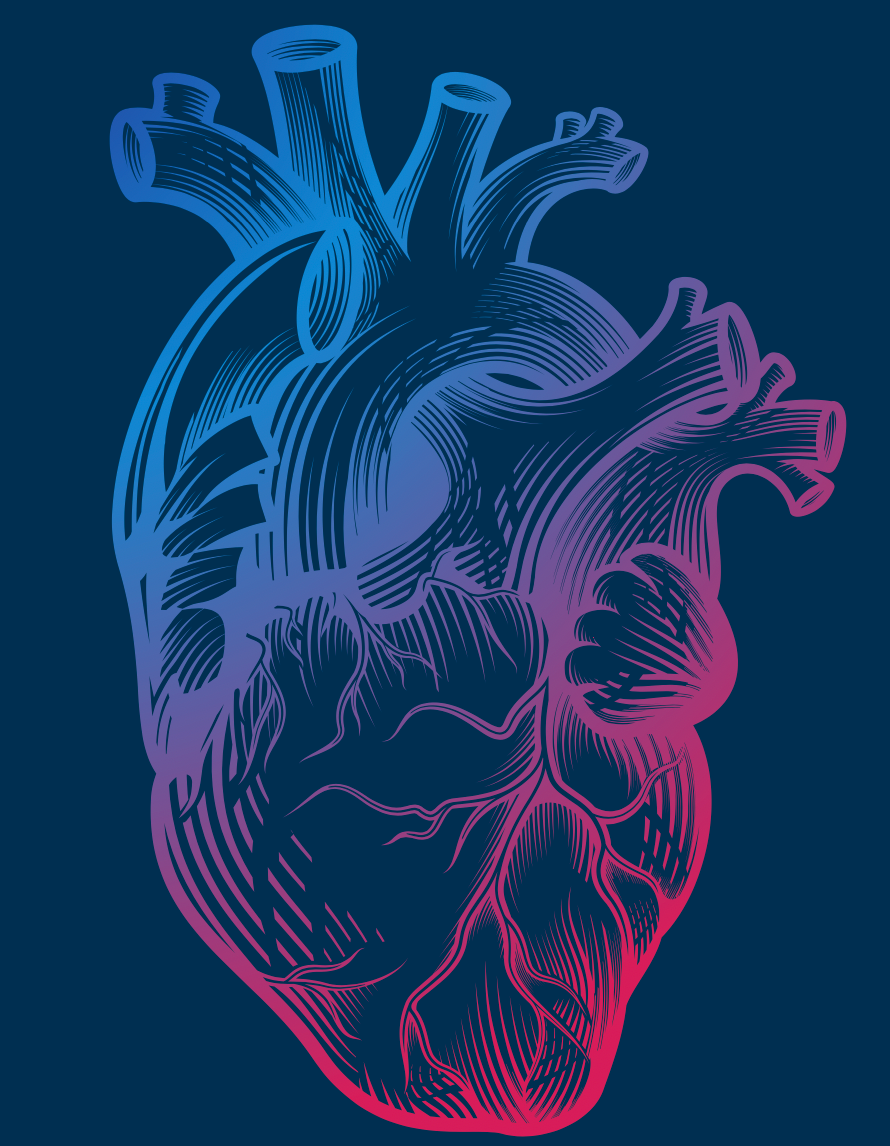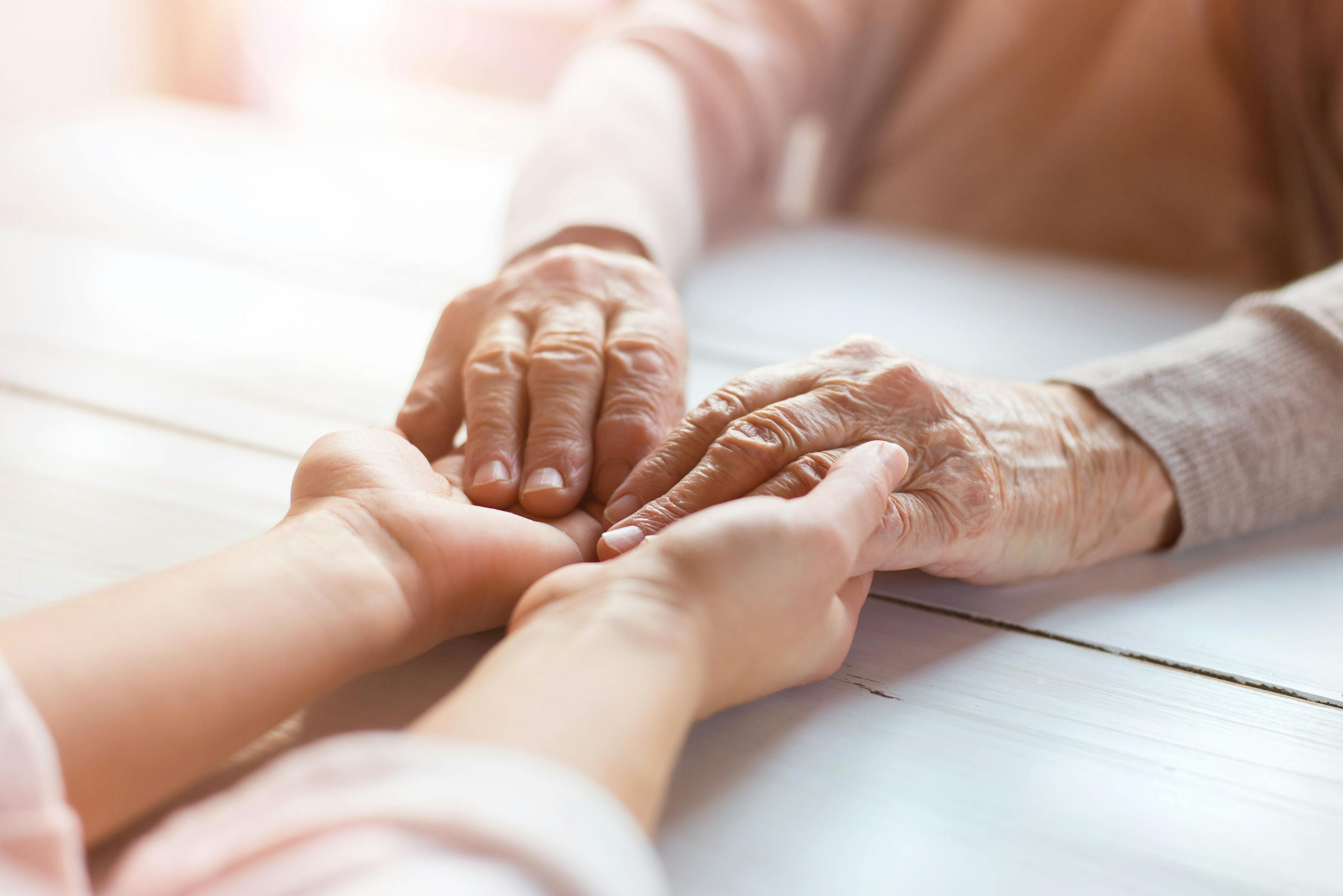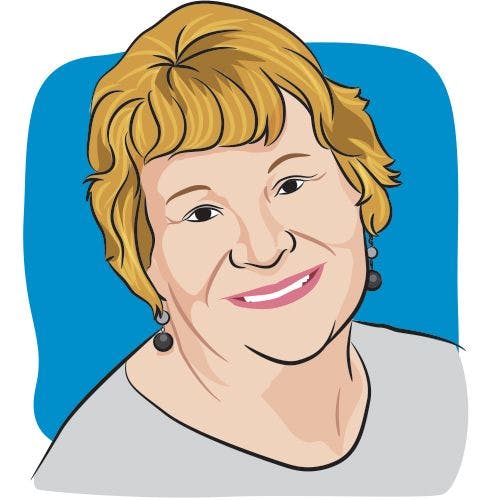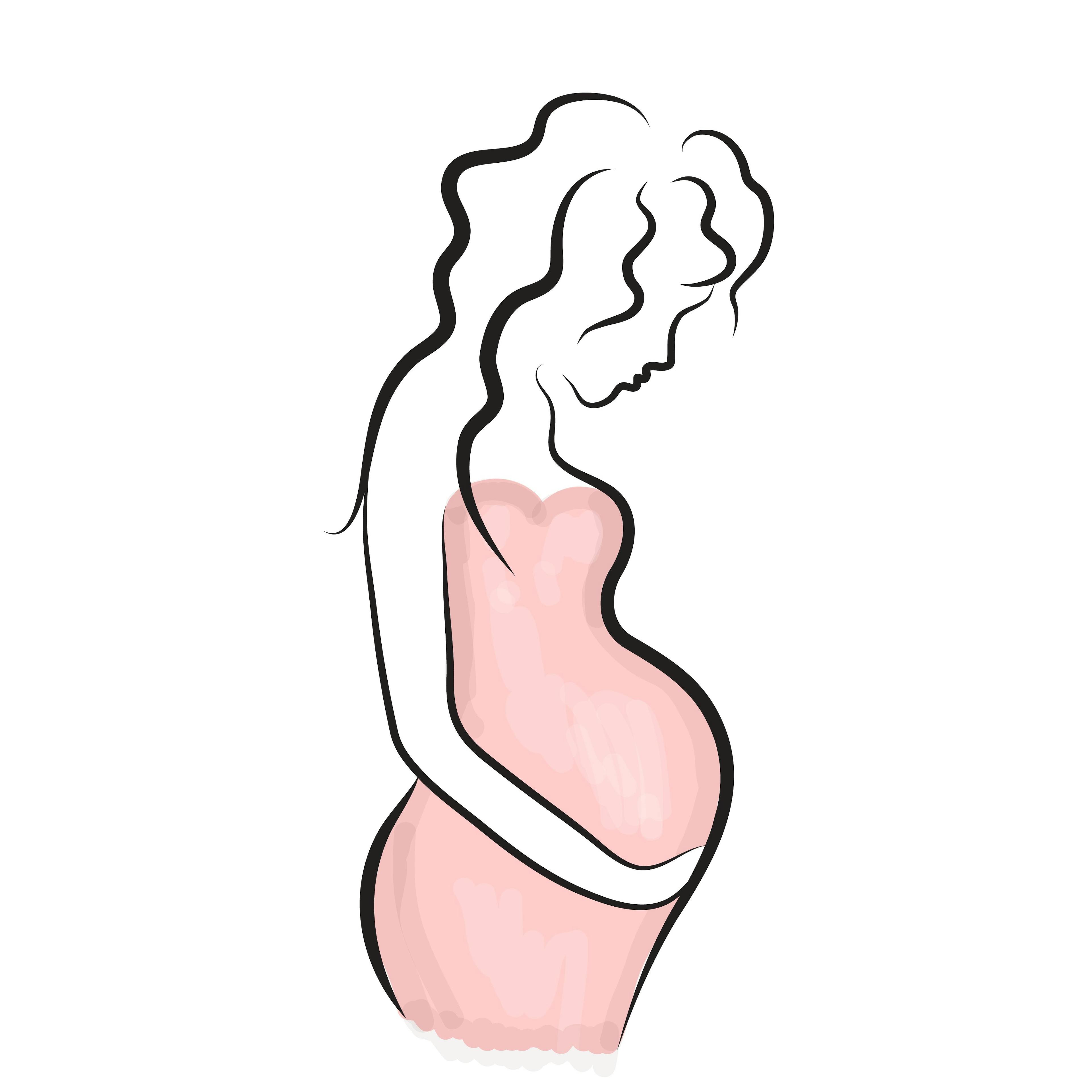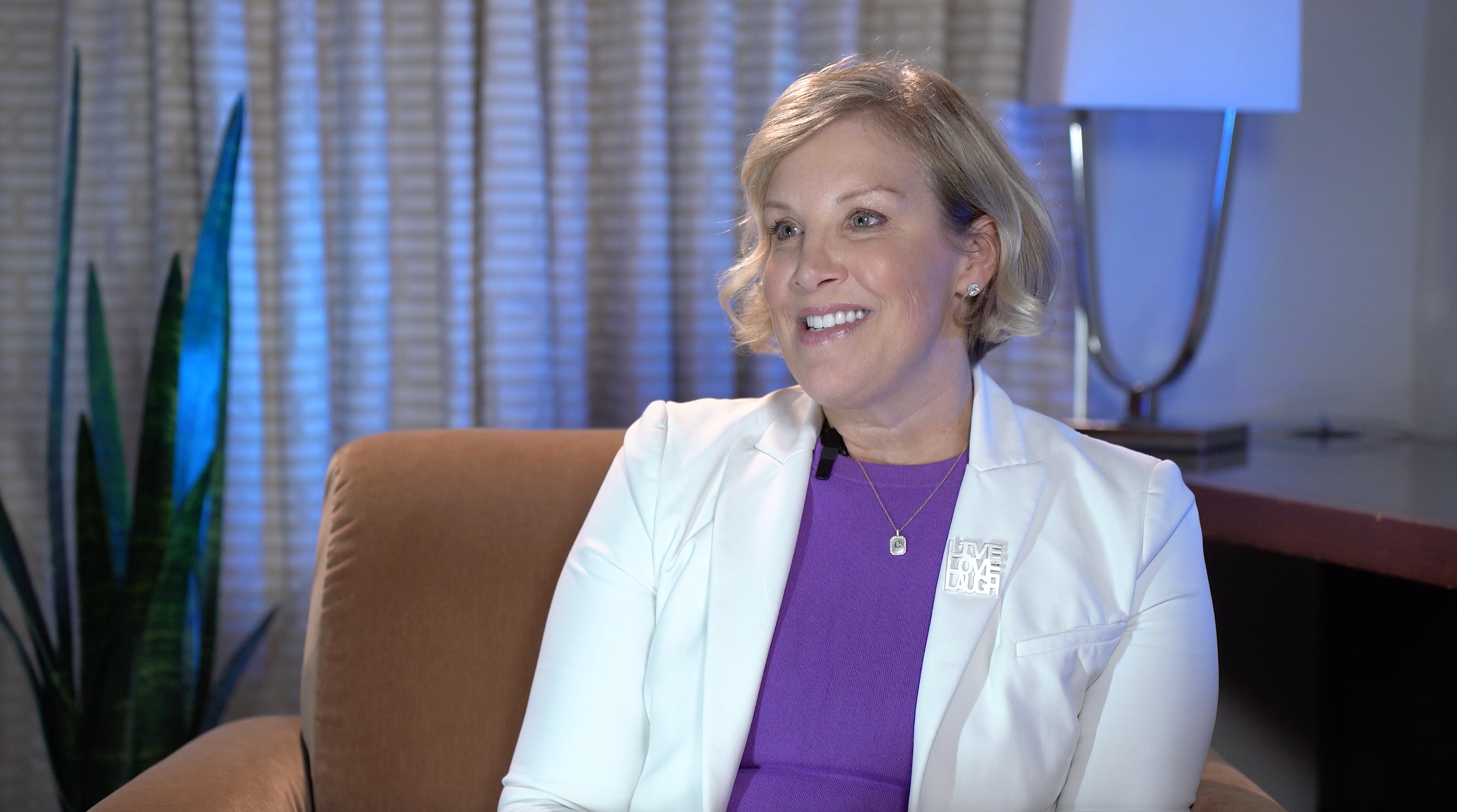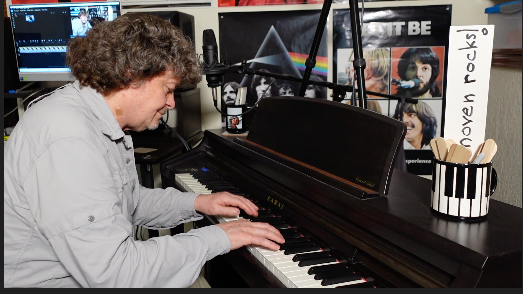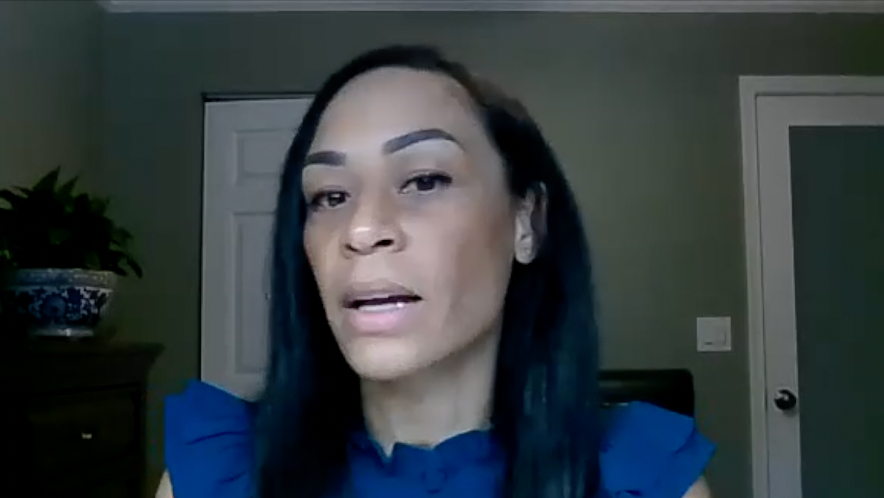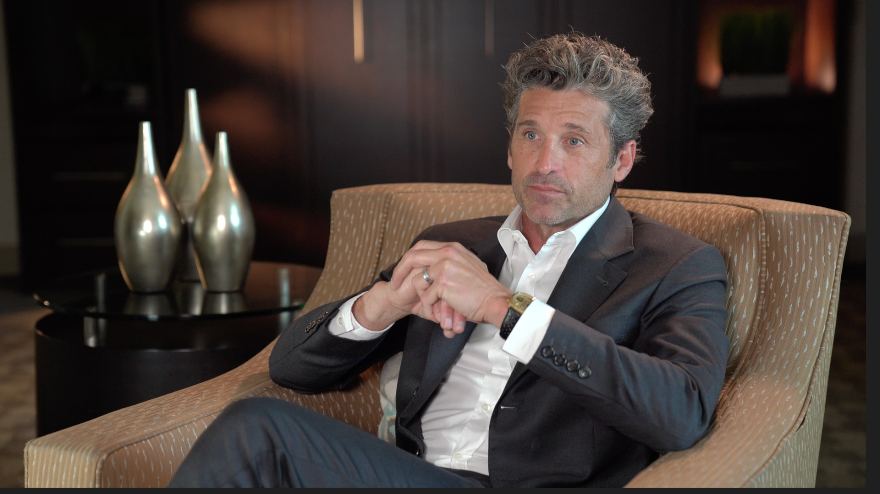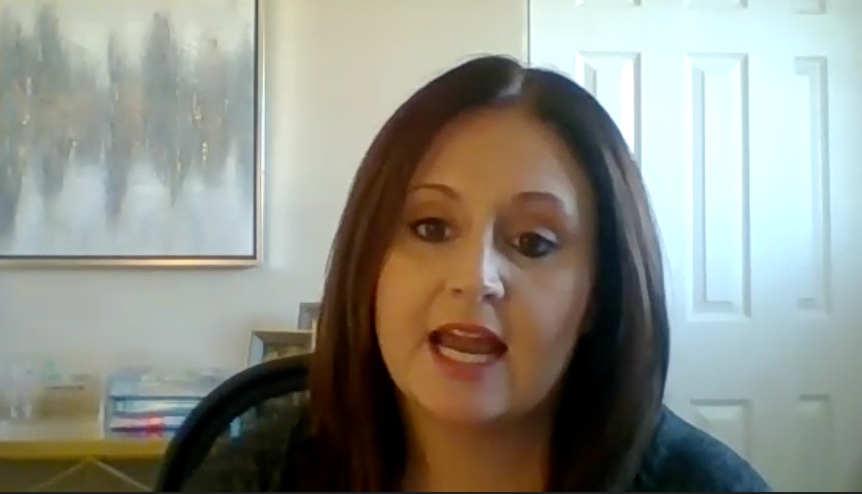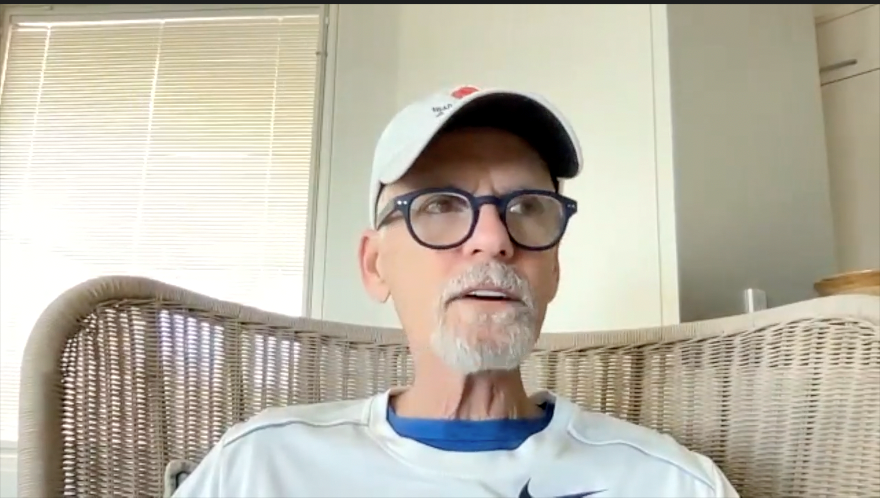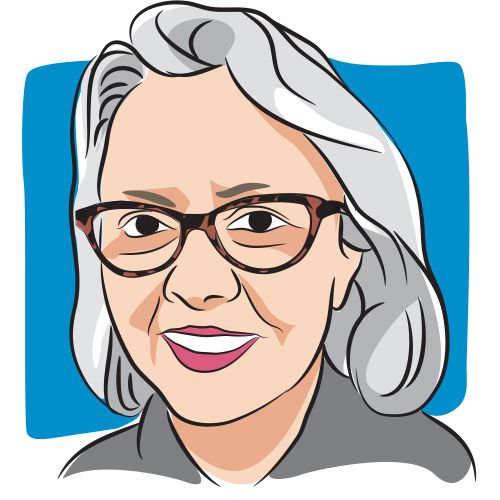Publication
Article
Heal
Understanding Heart Problems After Cancer Treatment
Author(s):
Doctors have known for some time about cardiotoxicity — the toxic effects that certain cancer treatments have on the heart. Here, we take a closer look.
Thad Burke felt great after finishing his first Half Ironman triathlon in September 2013. Seven years earlier, Burke, then 20, had received chemotherapy and radiation therapy to put stage 2 Hodgkin lymphoma into remission. With cancer behind him, Burke, a resident of Brandon, Mississippi, was at his peak fitness level. So, when a routine annual cancer survivor checkup indicated a heart problem less than four months after the race, Burke was stunned.
“There’s always a fear of cancer recurrence when you go to these checkups. But heart disease in my mid-20s wasn’t on my radar. I had no symptoms and was more physically active than ever,” Burke says. “I was aware that cancer treatments could potentially affect my heart down the road. But I didn’t realize how soon down the road it could be.”
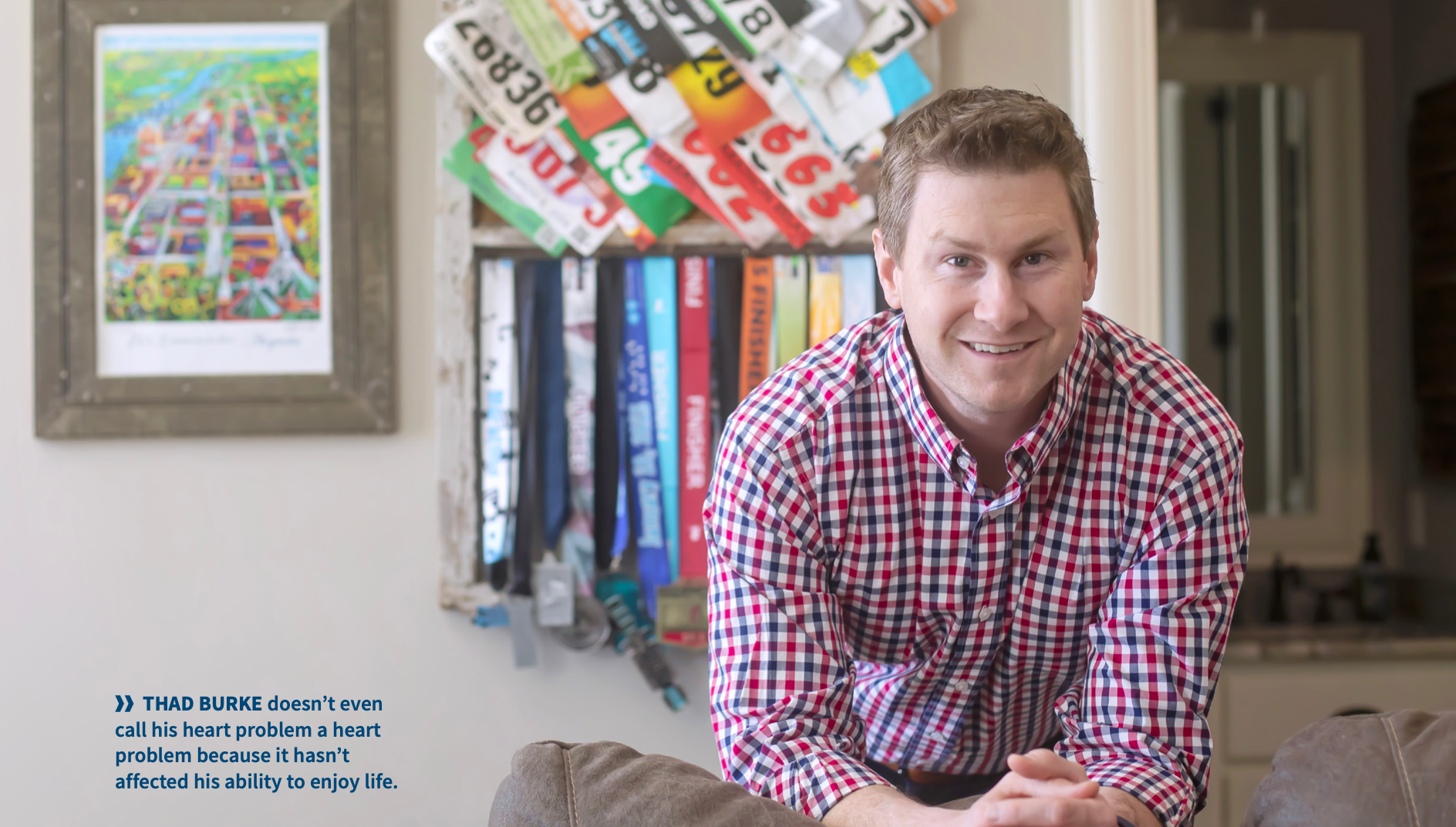
The squeezing action, known as the ejection fraction, of Burke’s left heart ventricle was low. His heart was pumping out 45% blood volume with each squeeze. A healthy ejection fraction for a man typically falls in the 55% to 70% range, according to the American Heart Association. Anything below 40% indicates some degree of heart failure. Burke’s echocardiogram reading showed decreased heart function. Although he didn’t have overt heart failure, there were definite changes to his heart muscle. Without treatment, the damage could lead to actual heart failure.
Connecting Cancer and Heart Disease
Doctors have known for some time about cardiotoxicity — the toxic effects that certain cancer treatments have on the heart. For instance, chemotherapy is effective because it kills cancer cells. But the drugs affect healthy cells, too, including the ones that power the heart. Herceptin (trastuzumab), anthracyclines and 5-fluorouracil have some of the strongest cardiotoxic effects. Radiation therapy, especially treatment that targets tumors in the chest area, can damage heart muscle and affect coronary arteries that supply blood and oxygen to heart muscles. Studies also show a link between certain targeted therapies, hormone therapies, immunotherapies and heart problems. However, in addition to direct injury to the heart and associated tissues, most heart problems in patients with cancer are a result of secondary effects of the drugs on blood pressure, lipids, sugar control and lifestyle changes. Cardiovascular disease isn’t exclusive to cancer survivors.
It claims the lives of 1 in 4 Americans each year, making it the leading cause of adult deaths, with cancer a close second, according to the Center for Disease Control Prevention.
The term “cardiovascular disease” encompasses a range of potentially life-threatening problems, including coronary artery or heart disease (often caused by plaque buildup in arteries), heart attack, heart failure, valve disease, aneurysms, strokes and arrhythmias. Cancer survivors also are more likely to develop pericarditis, which is inflammation of the sac surrounding the heart.
Survivors face cardiovascular disease treatment challenges, too. “People who have received radiation treatments to the chest can develop fibrosis. This hardened, scarred irradiated tissue can make it more difficult for a cardiovascular surgeon to perform procedures [such as] coronary bypass surgery or heart valve replacement,” says Dr. Daniel A. Mulrooney, deputy director of the After Completion of Therapy Clinic at St. Jude Children’s Research Hospital in Memphis, Tennessee.
Nearly half of Americans have some type of cardiovascular disease, according to the American Heart Association, and millions more are at high risk of getting it. Some of the well-known contributors to heart disease include high blood pressure, high cholesterol, diabetes, excess weight, family history, smoking and a sedentary lifestyle. But cancer and its treatments are rarely mentioned as risk factors, even though studies show that people who get certain cancer treatments are more likely to develop serious heart problems at a younger age than most of the population. And the outcomes for cancer survivors are worse: They’re up to six times more likely to die from cardiovascular disease than those who never have cancer, according to the European Society of Cardiology.
“Cancer screenings have increased the number of diagnosed cancers, including many cancers that once would have gone unnoticed. More people are receiving diagnoses of lower-risk cancers such as early-stage breast, prostate, thyroid and kidney cancers that respond favorably to treatments — if treatment is needed at all,” says Dr. Nicholas Zaorsky, an assistant professor in the Department of Radiation Oncology at the Penn State Cancer Institute in Hershey, Pennsylvania. “Because many cancer survivors are living longer, they’re more likely to die from another competing cause, such as cardiovascular disease, rather than the cancer itself.”
Zaorsky is part of a research group that conducted one of the largest and most comprehensive observational studies examining cardiovascular disease deaths among cancer survivors. The study looked at causes of death among people who had 28 different types of cancers over a 40-year span, from 1973 to 2012. Findings published in the December 2019 issue of the European Heart Journal indicate that 1 in 10 cancer survivors die from cardiovascular disease, not cancer. People receive a diagnosis of any type of cancer before age 55 are 10 times more likely to die from various cardiovascular problems than people without cancer. This risk was highest among people who have cancers of the bladder, larynx, prostate, uterus, colon or breast.
Still, it’s the treatment and not the cancer type that predisposes someone to heart and vascular problems. “Cancer treatments can raise blood pressure and blood sugar. They can stiffen heart valves and arteries. They can cause weight gain and bring on fatigue that makes it difficult to be physically active and maintain a healthy weight,” says Dr. Bonnie Ky, director of the Penn Cardio-Oncology Translational Center of Excellence at the Hospital of the University of Pennsylvania in Philadelphia.
Over the past 15 years, cardio-oncology has emerged as a new medical specialty. Cardiologists, such as Ky, partner with oncologists and hematologists to minimize the effects of cancer therapies on the heart during treatments and afterward.
“Unfortunately, adults may already have heart disease or heart disease risk factors when they receive a cancer diagnosis,” Ky says. “Cancer treatments can speed up the onset of heart problems and symptoms, causing heart damage earlier than we would expect.”
Children with cancer tend to have healthy hearts. “Because of their young age at the time of the initial cancer diagnosis and treatments, childhood cancer survivors have more years of living ahead of them,” Mulrooney says. “Everyone’s risk of heart disease goes up as they get older. But this risk, particularly the chances of dying from heart disease, may be greater for childhood cancer survivors when they become adults. This possibility is something we’re still studying.”
The good news is that many therapies in use today are less cardiotoxic than they were decades ago. “Radiation therapy in 2020 is better targeted than radiation therapy given in the 1950s,” Mulrooney says. “We’re able to more precisely target just the tumor, protecting more of the surrounding healthy tissue and cells.”
As new treatments enter the market and experts learn more about the long-term effects of cancer treatments on the heart, doctors continue to make changes to protect the heart health of people with cancer. According to study results published in the Journal of Clinical Oncology, since 2005, anthracyclines, one of the more cardiotoxic of chemotherapy drugs often used to treat breast cancer, have steadily fallen out of favor. Doctors now turn to taxane chemotherapy drugs such as Taxol (paclitaxel) that don’t appear to cause heart damage.
The longer a cancer survivor lives, the more likely they are to develop some form of cardiovascular disease. The European Heart Journal study found that cardiovascular deaths are most likely to occur during the first year after a cancer diagnosis. “Some people get blood clots that cause life-threatening heart attacks or strokes,” Zaorsky says. “For others, their health
may have already been poor when they received their cancer diagnosis, and the treatments prove too toxic.”
Not everyone who has cancer will develop heart problems. But given that so many Americans either already have cardio- vascular disease or risk factors for it, the odds aren’t in most people’s favor. Fortunately, steps can be taken to maintain a healthy heart.
Protecting the Heart After Cancer
The early detection and treatment of cardiovascular disease are key to preventing additional life-threatening problems. For some people, such as Burke, taking a daily pill keeps heart disease in check. Burke takes carvedilol, a beta-blocker that relaxes blood vessels, improves blood flow and lowers blood pressure. “The heart problem hasn’t affected my ability to enjoy life,” he says. “I sometimes don’t even call it a heart problem because I’m able to take a pill and still do whatever I want.”
Cancer survivor Renita Michael developed an abnormal heart rhythm two years after undergoing surgery and isotropic radiation therapy for stage 3 thyroid cancer. “I fainted at work. When I saw the doctor, he said my heart was beating too fast,” she says. Michael, a resident of Hillsborough, New Jersey, was 38 at the time of the heart diagnosis in 2008. When medications didn’t help, Michael had a cardiac ablation to get her heart back into a healthy rhythm. She now volunteers with Cancer Hope Network, guiding people who have a new diagnosis of thyroid cancer. “I tell them to get their heart checked regularly, especially for the first couple of years after treatment,” she says.
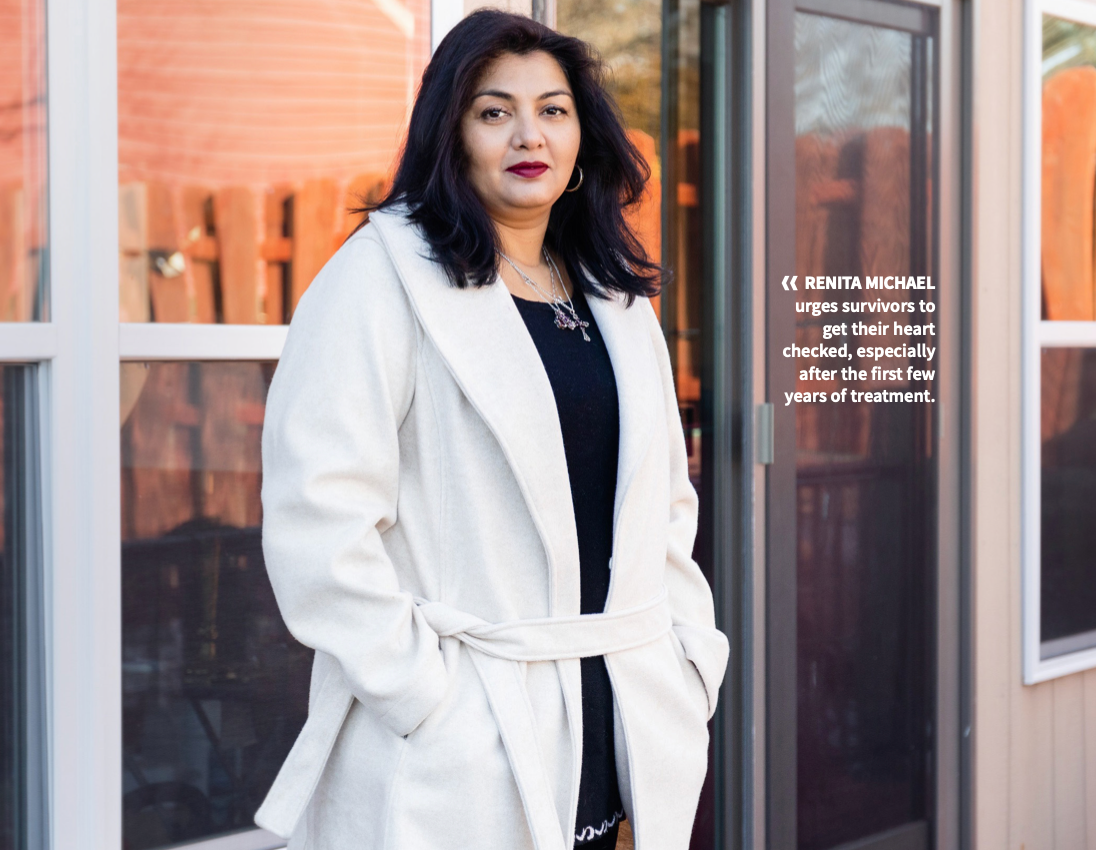
The risk of heart problems associated with cancer therapies can persist for 20 to 45 years after treatments end, according to study results published in The BMJ. Although there’s time for problems to develop, there’s also time to prevent them or at least start interventions early. “Risk mitigation is a primary focus of many cardio- oncology studies,” says Ky, who serves as editor-in-chief of the American College of Cardiology’s scientific journal JACC: CardioOncology.
“We know that cancer survivors are more prone to high blood pressure, obesity and diabetes, which contribute to heart disease. If we can prevent these problems from happening or ensure better disease management, we can improve quality and quantity of life.”
There currently aren’t any medical guidelines for when cancer survivors need to see a cardiologist or get certain heart tests such as the echocardiogram that caught Burke’s heart problem. More cancer centers these days have cardio-oncology programs that provide ongoing heart disease monitoring, but not everyone has access to these services. The first step in protecting your heart begins with sharing your cancer treatment records or survivorship care plan with your primary care physician. Make sure that information is part of your medical records. “Often, the most appropriate management in terms of medical care for your heart depends on what treatments you received, including the total lifetime drug or radiation dose exposure,” Ky says. She recommends learning all that you can about your cancer treatments, particularly the potential heart effects. “You need to advocate for yourself by equipping yourself with knowledge,” she says.
Cancer survivors also may need to keep a closer eye on important numbers such as blood pressure, blood sugar, cholesterol and weight. See your doctor if you experience symptoms of a heart problem, which include fatigue, shortness of breath, persistent cough, swollen legs, heart palpitations, racing heart and decreased physical activity. As Ky notes, “We believe that cardiotoxicity is a detectable, treatable, preventable and manageable problem.” For more information about cancer treatments and heart health, visit the American College of Cardiology’s CardioSmart at cardiosmart.org.
For more news on cancer updates, research and education, don’t forget to subscribe to CURE®’s newsletters here.
